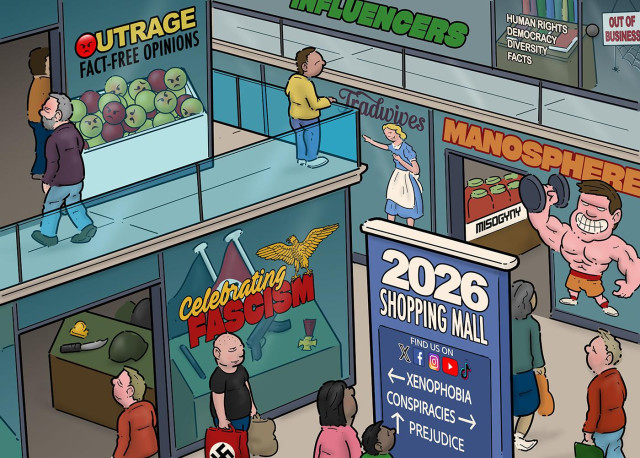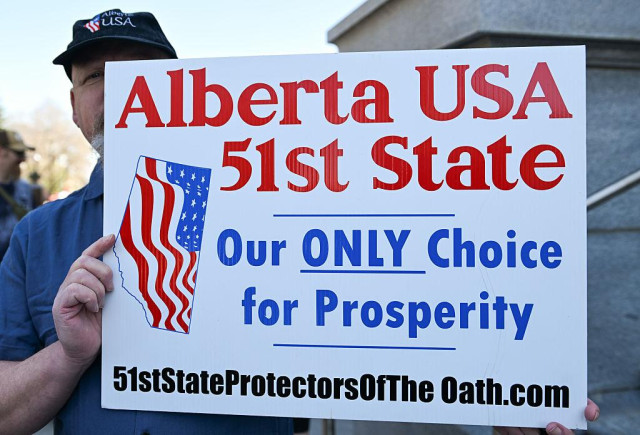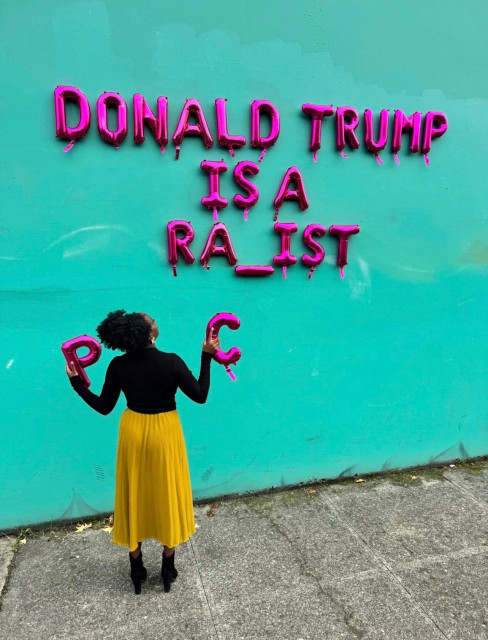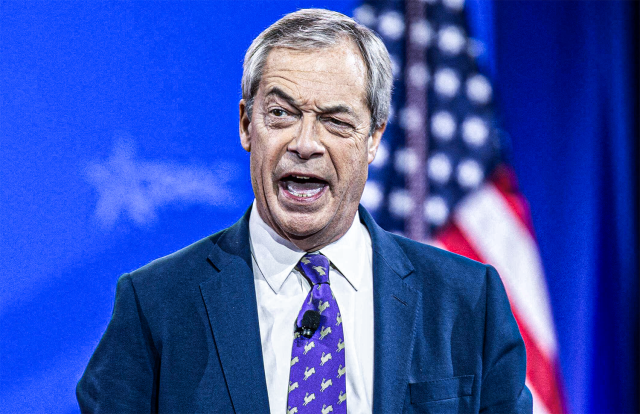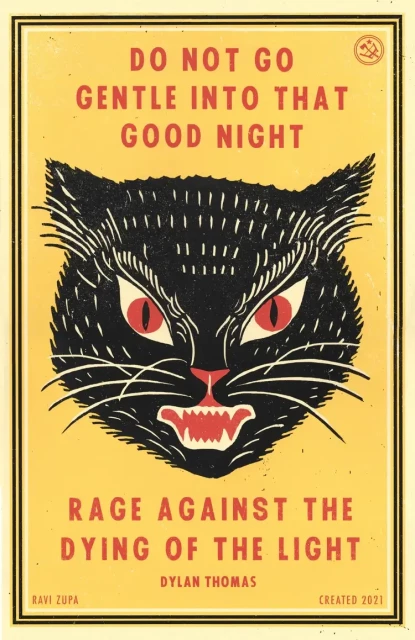Search
Items tagged with: fascism
If 2026 were a shopping mall, it would probably look like this. Cartoon for Dutch newspaper Trouw: trouw.nl/cartoons/tjeerd-royaa…
In October, ICE grabbed Maher Tarabishi.
He was a 24/7 caregiver for his disabled son Wael.
At the time of Maher’s detention, disability advocates warned that taking away Wael’s caregiver put his life at risk.
Wael died three months later.
ICE caused his death.
They didn’t even get to say goodbye.
My latest:
disabledginger.com/p/ice-took-…
#uspol #ice #abolishice #fascism #disability #ableism #eugenics

ICE Took Wael Tarabishi's Full Time Caregiver Away... and it Killed Him
Wael Tarabishi was a 30 year old disabled man who's father Maher was his full time caregiver. ICE took Maher in October, leaving Wael without support. He died three months later.Broadwaybabyto (The Disabled Ginger)
Just read @pluralistic's great article "The Nuremberg Caucus", which lays out a number of ways that our Democratic leadership *could* rise up to the moment of the Trump administration's fascist takeover, if they weren't a bunch of spineless cowards.
I decided to email it to my two state senators as well as my house rep. I recommend everyone else should do the same. Even if they don't go through with the aggressive responses Cory talks about, maybe they'll at least realize that the public wants them to do fucking *something*.
pluralistic.net/2026/02/10/mil…
(Also if you wanna get your 3 congressmen's contact info, go here):
I’m actually shocked that folks I speak to here in Ireland are still planning holidays in the USA.
Here’s a testimonial you might not find on Tripadvisor:
“like a concentration camp, absolute hell” – Seamus Culleton
theguardian.com/us-news/2026/f…
Seriously, what’re you all thinking? DO. NOT. VISIT. THE. USA. FFS!

Irish man with valid US work permit held in ICE detention for five months
Seamus Culleton has lived in US for two decades, married a citizen and runs a plastering business but faces deportationRory Carroll (The Guardian)
RE: mamot.fr/@pluralistic/11604641…
No, seriously, why is nobody doing this? I'm actually pretty sure that some version of it could be established outside the US, too - there's SO MUCH CRIME! on front-row display here & a lot of it crosses borders and/or international law...
Fucking how did the world become this uninterested in bringing (a certain kind of) criminals to justice?
PS. With all the Discord stuff, in case you wonder why you never see me promoting Matrix, it’s not because it’s a usability nightmare (which it is) but because it’s made by the kind of people who’d be happy to call ICE a customer.
The “F” in FOSS doesn’t stand for fascism.
@element mastodon.matrix.org/@element/1…
#discord #matrix #element #police #fascism #FOSS
Element (@element@mastodon.matrix.org)
@amatecha@merveilles.town @matrix @liaizon@wake.st https://element.io/blog/the-online-safety-bill-an-attack-on-encryption gives an idea of our position. And no, there are no backdoors.Matrix.org's Mastodon
🇨🇦 Inside the Right-Wing Movement Pushing #Alberta to Secede From #Canada
#Trump officials have repeatedly met with secessionist leaders from the province, which has large oil and gas deposits.
By Nora Loreto,
Published Feb 9, 2026
truthout.org/articles/inside-t…
#elbowsup #toronto #montreal #vancouver #winnipeg #halifax #ontario #quebec #cdnpoli #democracy #sovereignty @politics @democracy @journalismandcomment #media #fossilfuels #fascism #imperialism #venezuela #iran #nigeria #cuba #greenland #oil
Inside the Right-Wing Movement Pushing Alberta to Secede From Canada
Trump officials have repeatedly met with secessionist leaders from the province, which has large oil and gas deposits.Nora Loreto (Truthout)
Massive Protests against American fascist paramilitary forces in the Olympics (Milan, Italy - 2026)
Source:
reddit.com/comments/1qz0lng
#politics #resistance #resist #usa #authoritarianism #fascism #protest #civildisobedience #USAFascistShitShow #ice #icestapo #policestate #paramilitary #policemilitarization #federalinvasion #abolishice #abolishdhs #abolishhsi #abolishero #italy #olympics #crimesofice_videos_protest
I wish I could force every legislator
in favor of Age Verification to watch this amazing talk by Carissa Véliz,
So that they understand the dangers
of the surveillance infrastructure they are currently putting in place.
You should watch it too: youtube.com/watch?v=xSPRouBvgF…
#Privacy #Democracy #HumanRights #AgeVerification #MassSurveillance #Fascism
- YouTube
Bekijk je favoriete video's, luister naar de muziek die je leuk vindt, upload originele content en deel alles met vrienden, familie en anderen op YouTube.www.youtube.com
"It’s time for the world to boycott the US"
"Under Donald Trump, the US is escalating violence abroad & repression at home while facing none of the sanctions routinely demanded of other states."
"A global boycott & divestment campaign may now be the only nonviolent way to force accountability."
aljazeera.com/opinions/2026/2/…
#USPol #EUPol #CdnPoli #BoycottAmerica #autocracy #Racism #BDS #Fascism .

It’s time for the world to boycott the US
A global boycott may be the only nonviolent way to curb US aggression and repression.Donald Earl Collins (Al Jazeera)
Aliya Rahman's statement after being abducted by ICE.
The transcript is in the posts below (courtesy of Jenny Carter on FB).
If you watch it, at the link below (it's on YouTube), I should mention I was crying by the end of her statement.
🧵⬇️
#Autistic #Neurodivergent #ICE #Fascism #Democracy #Racism #Minnesota #Trump #ActuallyAutistic (me) #BlackLivesMatter #Disabled
youtube.com/watch?v=zrcW8SZtYp…
- YouTube
Bekijk je favoriete video's, luister naar de muziek die je leuk vindt, upload originele content en deel alles met vrienden, familie en anderen op YouTube.www.youtube.com
From @pluralistic
"The question isn’t merely “How do we elect better leaders?” It’s “How do we make our leaders follow us?” Today’s Democrats are unserious quislings who keep bringing a squirt-gun to a mass-casualty assault-rifle spree-shooting. If we want Congressional Democrats to form a Nuremburg Caucus and start holding hearings on who they’re going to put in the dock when the Trump regime collapses, we’re going to have to drive them to it.”
“Reform UK’s Plans For a British ICE”
by Olly Haynes in The Byline Supplement on Substack
“Key figures in Nigel Farage’s party are demanding a UK version of Trump’s immigration enforcement agency, in the wake of the killings of Alex Pretti and Renée Good”
open.substack.com/pub/bylinesu…
#Press #SocialMedia #UK #ReformUKLtd #Farage #ICE #Pretti #Good #Murder #Minneapolis #Fascism #Trump
pluralistic.net/2026/02/02/cor… #billionaires #stockbuybacks #trump #fascism #StockSwindles #billionaireclass #thesystemisrigged
RE: social.tchncs.de/@kaffeeringe/…
@pluralistic This website is depressing as it shows how successful the Trump government has been in implementing a regime change in the US following the goals of Project 2025.
#Democracy #RegimeChange #Project2025 #Fascism

Steffen Voß (@kaffeeringe@social.tchncs.de)
Attached: 1 image Donald Trump wird ja manchmal als konfabulierender Trottel dargestellt. Seine Regierung ist aber äußerst erfolgreich bei der Umsetzung ihrer Ziele.Steffen Voß (Mastodon)
“Throughout our trip to Germany, most of the conversations I had with other survivors and their families reliably returned to fears and intergenerational traumas in the context of the Trump presidency; the rise of nationalism, authoritarianism and uncertainty in the U.S. and around the world. But although this was at the height of devastating reports of famine and genocide emerging from Gaza, everyone in our group, especially the Jews, seemed to make a concerted effort to avoid mention of Palestine.”
newlinesmag.com/first-person/r…
#germany #israel #USA #fascism #genocide #settlerColonialism #ethnicCleansing #apartheid #TheHolocaust #nazis #Gaza #Palestine

Remembering ‘Never Again for Everyone’ at Bergen-Belsen - New Lines Magazine
At the height of the war in Gaza, a Jewish activist for Palestine accompanied his mother, a Holocaust survivor, to Germany for a ceremony to mark 80 years since liberationMichael Schaeffer Omer-Man (New Lines Magazine)
Rep. LaMonica McIver faces 17 years in prison over ICE private concentration camp inspection.
They are jailing & killing all the good people. Removing every bulwark to their tyranny & destruction.
Prisons are bad enough, prisons for profit should be illegal.
No profit taking should exist in those spaces. It is why they starve & use punishment instead of community protection as a model.
My fellow Canadians, if you want to be part of the USA, you can move there freely on your own. I encourage you to do so.
"To go to a foreign country and to ask for assistance in breaking up Canada, there's an old-fashioned word for that, and that word is treason," said Eby ahead of the meeting.
#Canada #CanPoli #CdnPoli #USA #USPoli #Alberta #Separatism #Fascism #FarRight #ABPoli #BCPoli
cbc.ca/news/politics/eby-alber…
#DOJ Playbook in #Minnesota∶
Investigate Foes, Protect Allies
The #Trump “Justice” Department has often cast aside normal procedures intended to seek #accountability in favor of pushing #prosecutors & the #FBI to focus on critics of the #immigration crackdown.
#law #MafiaState #AbuseOfPower #authoritarianism #autocracy #dictatorship #fascism #tyranny #RightToProtest #CivilRights #UseOfForce #PoliceBrutality #murder #ICE #CBP #Sturmabteilung #StateSponsoredTerrorism
nytimes.com/2026/01/29/us/poli…
Art by Ravi Zupa.
Inspired by the poem “Do not go gentle into that good night” by Dylan Thomas. The general consensus of the poem is that it is about being on the threshold of and not conceding to death.
How timely.
Original art:
ravizupa.com/products/test-pro…
Full poem:
en.wikipedia.org/wiki/Do_not_g…
#Art #Poem #Poetry #Death #Mortality #Resist #Antifascism #Fascism #ICE
Rage Print
I love the poems of Dylan Thomas! Like most people it is this poem that lights me up the most and I’ve decided to share why I love it so much.Ravi Zupa Arts
“human processing facility” … USA v Gaza
We normalized this. When the world tolerated #Israel’s crimes against humanity in #Gaza and the world (the West) tolerated prioritizing geopolitical interests over international law and basic humanity, we sent a message: state violence against vulnerable populations is acceptable. This image (note the civilians on the ground) looks like a massacre, not immigration enforcement.
#uspol #usa #fascism #gazagenocide
i called Trump a fascist in 2015. so publications like The Atlantic, instead of giving me a chance to further explain, closed the door on me and had white guys writing pithy articles, bashing my posts about #MAGA #fascism, sometimes word for word yet without mentioning me once.
been unhireable as a writer, to even #USApol publications like Jacobin, because they branded me an alarmist.
yet here we are 10 years too late:
theatlantic.com/ideas/2026/01/…
h/t @HeavenlyPossum
kolektiva.social/@HeavenlyPoss…
Yes, It’s Fascism
Until recently, I thought it a term best avoided. But now, the resemblances are too many and too strong to deny.Jonathan Rauch (The Atlantic)

Sepp Blatter suggests fans should not travel to US for World Cup
The former Fifa president backed a Swiss lawyer who called for a boycott of the tournament due to security concerns in the USGuardian staff reporter (The Guardian)
“ALERT! Preserve Evidence Of ICE Crimes At Demonstrations To Help Future Prosecutions”
by Mark Taylor in DeMOCKracy.Ink on Substack
“Information protection is the first step on the road to justice”
open.substack.com/pub/mark192/…
#Press #US #ICE #Fascism #Evidence #Filming #Preservation

ALERT! Preserve Evidence Of ICE Crimes At Demonstrations To Help Future Prosecutions
Information protection is the first step on the road to justice.Mark Taylor (DeMOCKracy.Ink)
Greg #Bovino Loses His Job
The #BorderPatrol chief has been ousted from his role as “commander at large,” and will return to El Centro.
#ReneeGood #AlexPretti #StateSponsoredTerrorism #Trump #law #murder #ExtraJudicialKillings #Minneapolis #Minnesota #Constitution #RightToProtest #CivilRights #UseOfForce #ExcessiveForce #PoliceBrutality #AbuseOfPower #authoritarianism #autocracy #despotism #fascism #tyranny #MafiaState #ICE #CBP #Gestapo #Sturmabteilung
theatlantic.com/politics/2026/…

Greg Bovino Loses His Job
The Border Patrol chief has been ousted from his role as “commander at large,” and will return to El Centro.Nick Miroff (The Atlantic)
❌Veteran Brothers Roofing & Restoration
❌Grand Pine Developments
❌Charvold Homes
❌Blue Collar Tree and Junk Removal texasobserver.org/revealed-fou…
#WhiteSupremacy #Dallas #NorthTexas #politics #USpol #news #racism #SocialMedia #Texas #fascism

Revealed: Four Businesses with Ties to Patriot Front Operating in North Texas
The neo-Nazi group is engaged in a strategy to establish an independent economic ecosystem. Through publicly available information, interviews, and in-person observation, the Observer has identified companies in the Dallas-Fort Worth area that are op…Tristan Lee (The Texas Observer)
Folks, our very own @gerrymcgovern has his new book, 99th Day: A Warning About Technology, coming out next Monday.
gerrymcgovern.com/books/99th-d…
“99th Day is essential reading for anyone who cares about our planet. Prepare to be disturbed, enlightened and inspired.” – Justine McCarthy, The Irish Times
And, if you’re in Ireland, Gerry has a book tour in February. If I’m in the country, I’ll be at the Dublin event on the 9th. Hope to see some of you there :)
💕
#99thDay #books #environment #climateChange #capitalism #technology #BigTech #technoSolutionism #fascism #ireland
So, guess what?
The local nazis here in Sweden see ICE in the US and think "We want that here too".
It CAN happen here and in fact IT IS HAPPENING ALREADY.
Can we in the EU please take the risk seriously instead of being all smarmy at "those dumb Americans"?
Article in Swedish "Young Sveriges Demokraterna [the local fascist party] want to see a Swedish equivalent to ICE"
omni.se/unga-sd-are-vill-se-sv…
#EU #Europe
#fascism
#Sweden #Sverige

Unga SD:are vill se svensk motsvarighet till ICE
Ungsvenskarnas ordförande Denice Westerberg vill att det införs en migrationspolis i Sverige eller en ny myndighet i stil med amerikanska ICE. Till DN säger hon att hon i vanliga fall inte vill se fler myndigheter, men tillägger:Patrik Dahlin (Omni)
Yes, It’s #Fascism
Until recently, I thought it a term best avoided. But now, the resemblances are too many & too strong to deny.
By Jonathan Rauch
#Trump #UnitedStates #democracy #Constitution #law
theatlantic.com/ideas/2026/01/…
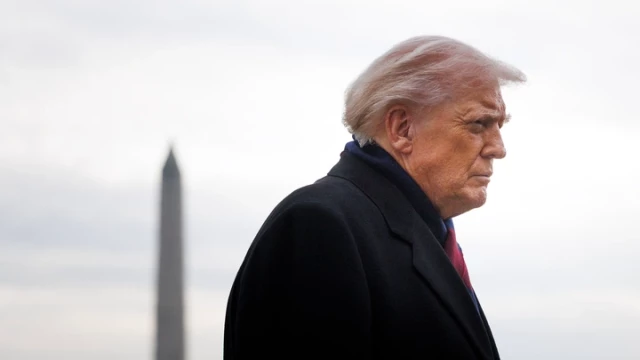
Yes, It’s Fascism
Until recently, I thought it a term best avoided. But now, the resemblances are too many and too strong to deny.Jonathan Rauch (The Atlantic)
